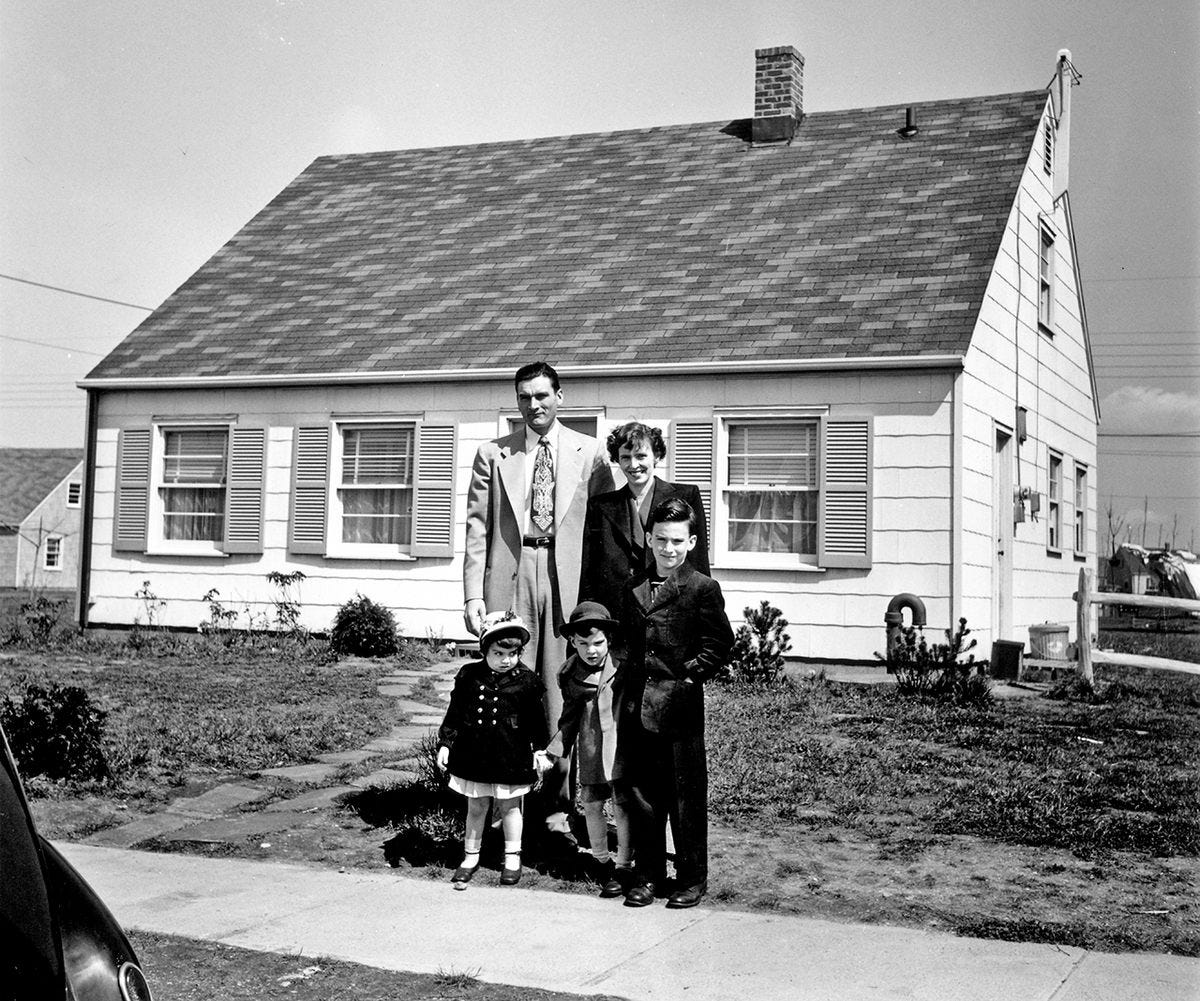The Cost of Progress
In this Morgan Housel podcast, he makes the point that what the average American considers to be an average, ordinary life has shifted dramatically over the last 80 years.
He uses 1950s housing as a case in point.
For soldiers returning from World War II, the newly created suburbs were a utopia. They didn’t have to live with their extended families in their inner-city apartments, and these former tracts of farmland offered an alternative, where they could own rather than rent.
Men who grew up during the Depression now had a backyard, a white picket fence, 3.5 kids, a dog, a stay-at-home wife, and a job that allowed them to afford it all.
It was the ‘Leave It to Beaver’ American dream.
But fast forward four decades, and what had been a utopia in 1950 had somehow become unbearable. By 1990, all but one of the 50,000 original Levitt homes that epitomized the suburbs had been expanded.
The original units were a standardized 750-square-feet. No garage, basement, deck, or air conditioning. Just two bedrooms, a kitchen, a living room, and a single bathroom to accommodate a family of five or six.
That would hardly be considered middle class today, and as I’m sure many of the homeowners who paid for the later renovations would tell you, “People just can’t live like that anymore.”
As unaffordable as housing may seem today (the median sales price of existing single-family homes in the United States is currently $416,900, with an average square footage of roughly 2,200 square feet), things are still arguably better than they have ever been.
As this article from Human Progress points out,
Compared to the early 1970s, we get 74 percent more square feet of housing per person, per percent of household income.
The authors’ data here only go back to 1972, but the point would be very much the same if it went back further.
Nostalgia has a way of making us forget the details, but it is essential to remember that life hasn’t gotten worse; The standard of what constitutes a good life has just gotten much higher.
If history is any indication, our future standard of living will be infinitely better than it is today. However, humans will likely offset this fact by continually shifting the goalposts for what makes us happy, and then complain that everything used to be better.
When expectations climb faster than progress, it will always seem like things are getting worse... no matter how much they improve.
Personal note:
Last Sunday, we dropped the kids off at camp in Bandera.
Tomorrow we pick them up and find out if they missed us.






When it comes to writing about investments, the disclaimers are important. Past performance is not indicative of future returns, my opinions are not necessarily those of TSA Wealth Management, an SEC-registered investment advisor, and this is not intended to be personalized legal, accounting, or tax advice etc.
For additional disclaimers associated with TSA Wealth Management please visit https://tsawm.com/disclosure or find TSA Wealth Management's Form CRS at https://adviserinfo.sec.gov/firm/summary/323123